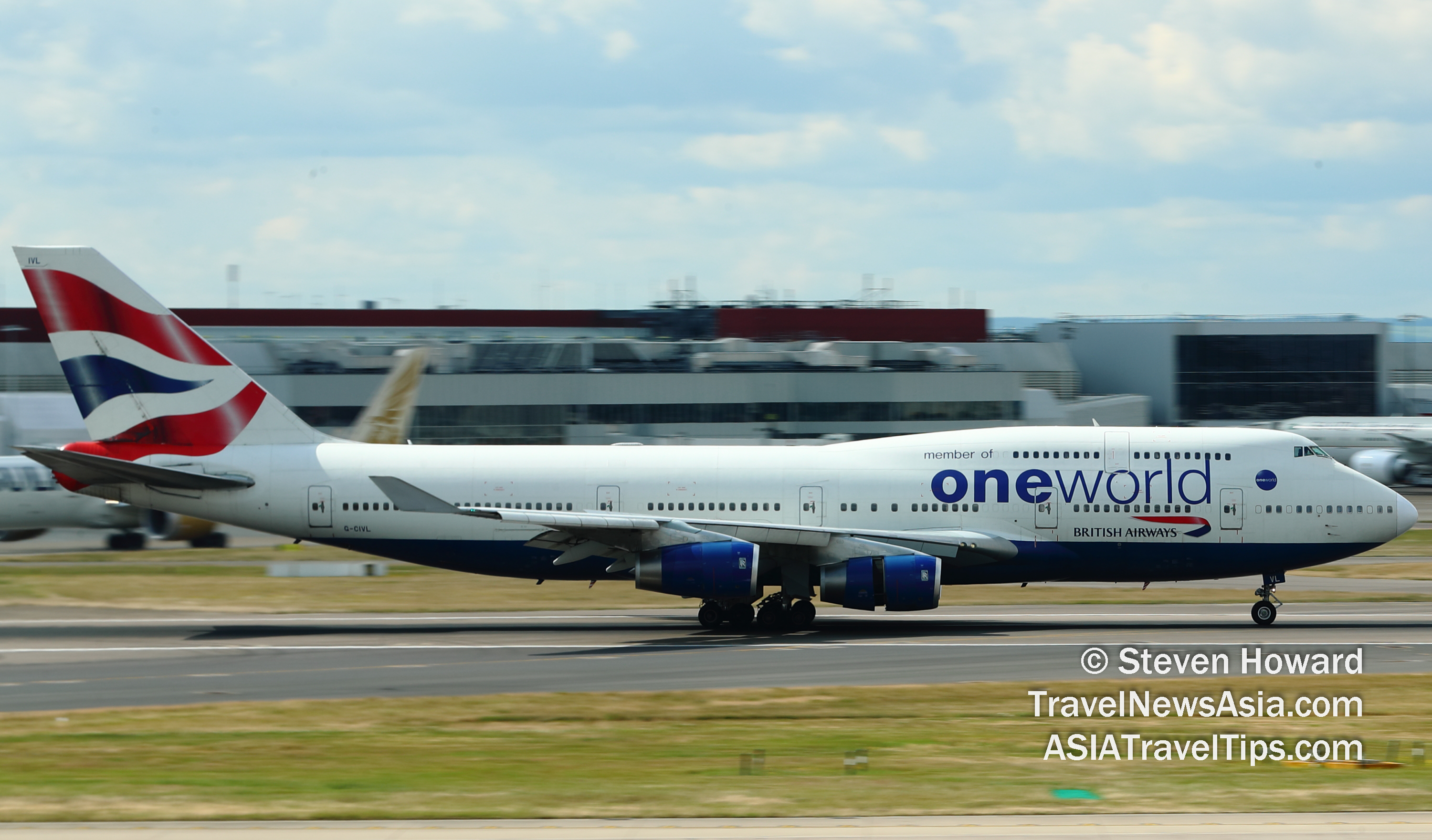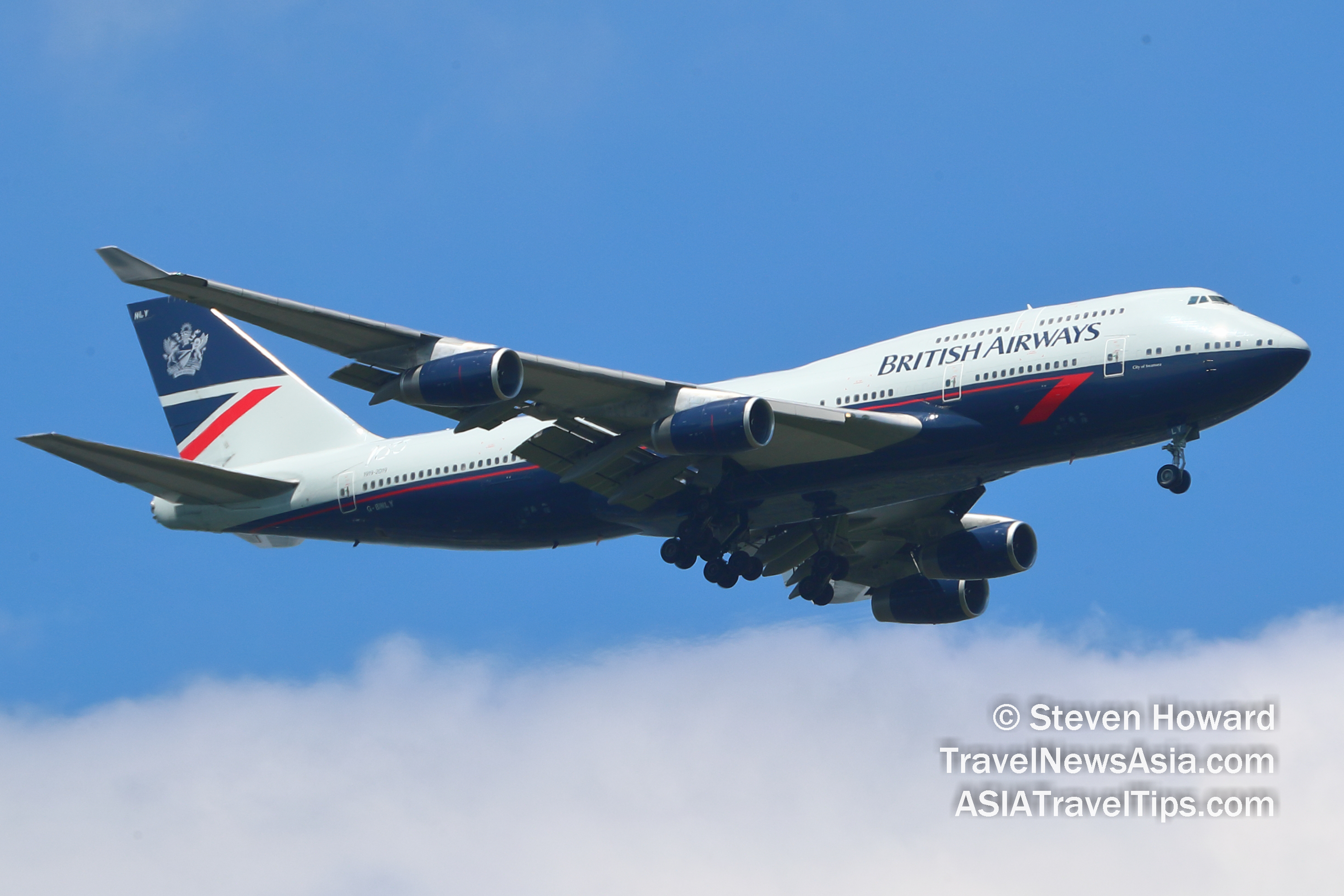|
British Airways has announced that its fleet of
Boeing 747 aircraft, fondly known as �The Queen of the Skies�, are
likely to have flown their last scheduled commercial service.
After nearly five decades of service and millions
of miles flown around the globe, it is proposed that the airline�s
remaining fleet of 31 747-400 aircraft will be retired with
immediate effect as a result of the devastating impact the COVID19
pandemic has had on the airline and the aviation sector, which is
not predicted to recover to 2019 levels until 2023/24.
Just a year ago, British Airways re-painted three
of its jumbo jets in heritage colours to mark the company�s
centenary. The BOAC jet put in a guest appearance with the Red
Arrows much to the delight of spectators at the Royal
International Air Tattoo, and the aircraft will shortly be heading
towards its final resting place alongside 30 others.

The fuel-hungry aircraft were slowly being phased
out by British Airways as they reached the end of their working
life in order to help meet the company�s commitment to net zero by
2050. The airline has invested heavily in new, modern long-haul
aircraft including 6 Airbus A350s and 32 Boeing 787s which are around 25 per
cent more fuel-efficient than the Boeing 747.
Alex Cruz, British Airways� Chairman and CEO,
said, �This is not how we wanted or expected to have to say
goodbye to our incredible fleet of 747 aircraft. It is a
heart-breaking decision to have to make. So many people, including
many thousands of our colleagues past and present, have spent
countless hours on and with these wonderful planes � they have
been at the centre of so many memories, including my very first
long-haul flight. They will always hold a special place in our
hearts at British Airways. We have committed to making our fleet
more environmentally friendly as we look to reduce the size of our
business to reflect the impact of the COVID19 pandemic on
aviation. As painful as it is, this is the most logical thing for
us to propose. The retirement of the jumbo jet will be felt by
many people across Britain, as well as by all of us at British
Airways. It is sadly another difficult but necessary step as we
prepare for a very different future.�
BOAC operated its first 747 London to New York
service on 14th April 1971 and in July 1989 the first British
Airways 747-400, the aircraft type the airline still flies today,
took to the skies.

Plane spotters who lined Heathrow�s perimeter
fences would watch as the magnificent 747-400 would typically take
off at 180mph and reach cruising speeds in the sky of up to
565mph.
For the next decade the airline took delivery of
56 more of the aircraft, with its final plane delivered in April
1999. At the time, it was the largest commercial aircraft in the
world, and it remained so until the Airbus A380 first took to the
skies in 2007.
At one point British Airways operated 57 747-400
aircraft. The original aircraft featured 27 First Class seats and
292 Economy seats. Initially, the upper deck, widely described as
the bubble, contained a lounge, with lounge chair seating.
It was known as the �club in the sky� and the aircraft also played
host to the world�s very first flat bed seat which British Airways
pioneered in 1999.
Today�s aircraft can seat up to 345 customers in
four classes � First, Club World (Business), World Traveller Plus
(Premium Economy) and World Traveller (Economy). British Airways
recently refreshed the interiors of a number of its 747 aircraft
which were expected to remain in service for several years to
come.
The airline�s jumbo jets are currently grounded at
various locations in the UK and are now only expected to reach
heights of 35,000 feet as they make their final journeys.
See also:
Airports, Air Travel and COVID19 - Exclusive Interview with SITA's President of Asia Pacific, Sumesh Patel.
See latest
Travel News,
Video
Interviews,
Podcasts
and other
news regarding:
COVID19,
BA,
British Airways,
747.
|
Headlines: |
|
|
